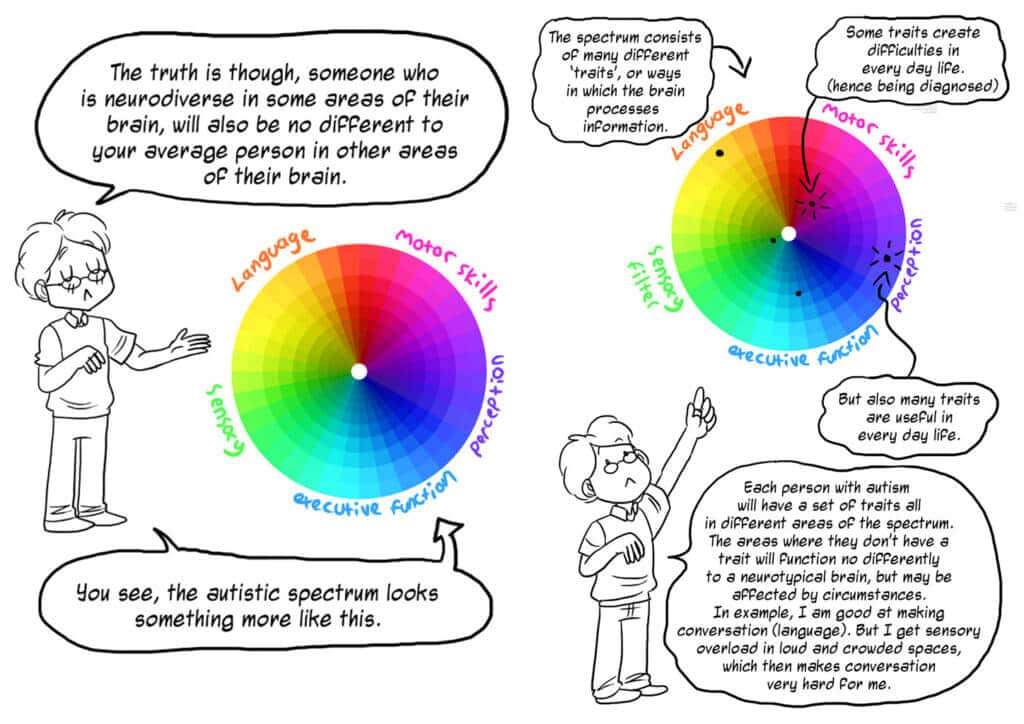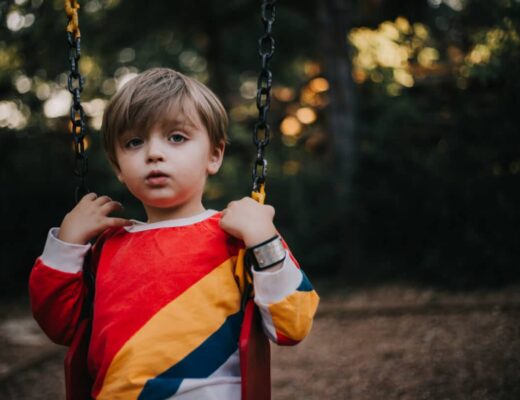
Watch from Jord Wood Watches
I was diagnosed with high-functioning Autism as an adult. It may be a surprise to some of you, but possibly not so much for other people who know me well. You must be wondering why I haven’t spoken about it before, especially after I was attacked for talking about my son’s autism from a “neurotypical perspective”. How ironic…
So, here are the main 3 reasons why I haven’t talked about it before today:
Reason #1: I attach a lot of importance in being diagnosed professionally. People can have autistic tendencies/behaviors and not be autistic. Just because someone is socially awkward and flaps his hands doesn’t make him autistic. My therapist had previously mentioned to me that I showed signs of Autism Spectrum Disorder but we didn’t pursue any testing at the time. More recently I wanted to know for sure so I decided to go through a full therapeutic assessment.
Therapeutic Assessment is a paradigm in which psychological testing is used to help people understand themselves better and find solutions to their persistent problems.
It differs from traditional psychological assessment, whose main goal is to diagnose disorders, plan treatments, and evaluate the effectiveness of interventions.
Therapeutic Assessment can serve all these purposes as well, but its primary goal is to facilitate positive changes in clients.
With a psychologist, I went through extensive and expansive testing. I took questionnaires, lengthy cognitive tests, the Rorschach test (ink blot), hours of interviews, and she got feedback from my mother and my husband. After a while, the psychiatrist was able to give a diagnosis. I have high functioning autism which would have been considered Asperger’s before the recent change in terminology broadly lumped it into Autism Spectrum Disorder.
Reason #2: Autism is very complicated. The spectrum is wide and no two people on the spectrum are the same. I don’t want to confuse people. How can Charlie and I both be autistic when he can’t even answer to his name and I’ve managed to have a family of my own?
Doesn’t that not make sense? It’s confusing to me… I feel like it’s not fair. A part of me is mad. It doesn’t mean I don’t accept our diagnosis because I do. I understand how the spectrum theoretically works but in my mind the severe side of the spectrum, where Charlie lives, should have a different official term to avoid confusing people, and better be able to describe the person’s abilities and disabilities.
People all over the autism spectrum do struggle in the same key areas as each other like social communication, restrictive interests, repetitive behavior, and social intent. But they struggle differently and on different levels, and they have any number of other idiosyncrasies that can make one person on the spectrum totally foreign looking to another.
Charlie is on the severe end of the spectrum. He struggles in more areas and more severely than most people on the spectrum, and I’m on the mild end of the spectrum. Yet, we both fall under that same umbrella called Autism Spectrum Disorder. Phew. Complicated.
I like this excerpt from a comic I found online. You can see the full version here.

Reason #3. Finally, it’s taken a lot of courage for me to put this all out there. I feel very vulnerable and it’s not pleasant. It’s not easy for me to talk about myself. But I also feel like I’m helping more people when I share Charlie’s story as opposed to mine. I’m 27, I was able to have a family of my own. Yes, there are things I cannot do like other people but overall I have it pretty easy compared to Charlie. I find that there’s a lot of information on the internet about high-functioning autism but not so much about severe autism. That said, I want people to realize that there’s more to autism than just social awkwardness and stimming behavior. High-functioning autistic people struggle too. I like this quote which sums it up perfectly:
The difference between high functioning autism and low functioning autism is that high functioning means your deficits are ignored and low functioning means your assets are ignored.
P.S. If you’re a neurotypical parent of an autistic child, I don’t think you should let anybody tell you what to say or not say about your child, or that your experience is somehow not relevant or valid. You have the right to share your kid’s journey with autism even if you’re not on the spectrum. Your experience and point of view is just as important.




18 Comments
Brittney
2017-02-26 at 2:45 AMI never would have known, having met you in person. Thank you for putting your story out there. I had no idea the Autism Spectrum was so wide.
Jackie
2017-02-26 at 3:00 AMLove
Kathleen
2017-02-26 at 8:54 AMMerci Eileen pour ton courage et toutes ces informations …c est très interressant de connaître tous ces différents niveaux … tu es une belle personne ..je continue de te suivre et petit Charlie aussi ..love .
Kathleen
2017-02-26 at 8:56 AMChristie ?
Tom
2017-02-26 at 9:41 AMVoilà, tu as posé un nom sur ton mal être. J’espère que cela va t’aider. Pour tous ceux qui te connaissent, tu va rester Eileen telle que nous l’avons toujours aimée. Qu’elle soit austiste Asperger ou non. Personnellement je m’en doutais…
Quelle que soit ta prise en charge, reste toi sauf si vraiment tu penses qu’être quelqu’un d’autre va t’aider. Tu seras toujours aussi intelligente ( tout le monde s’en est aperçu depuis longtemps même si tu n’aimes pas qu’on te le dise ), tu seras toujours une maman formidable, une fille formidable… Tire profit de toute ton intelligence vraisemblablement liée à ton statut d’Asperger. Fais-en une force et non un complexe. Tu es timide, tu es un peu anti-social, tu verbalisé peu….Et alors ?? Je suis un peu tout ça aussi. Moins intelligent, je pense…?? Être différent n’est pas une tare ou un défaut. Fais-en une force. Tu as un potentiel énorme !!!
Et puis, on t’aime COMME TU ES , tout comme Charlie , qui, un jour , va parler, tu verras.
Je t’embrasse très fort. ??❤❤
Alyq
2017-02-26 at 1:05 PMYoure a strong and beautiful woman <3 dont let anyone take you down, your family is amazing and it will always be
Alya
2017-02-26 at 1:06 PMI wrote my name wrong ^^ its alya
Caroline
2017-02-26 at 1:31 PMYou’re so strong for speaking up about it!
I’m 22 and going through aspergers screening right now. To me it makes so much sense, as I’ve always been a little “too weird”.
Now I can understand myself better and how to improve socially, and also my struggles with eating.
kristin mccarthy
2017-03-01 at 10:54 PMInteresting read. Not all that common to be diagnosed as an adult, but certainly possible.
Thomas
2017-03-01 at 11:24 PMI am sending you all love and support 🙂 stay strong 🙂
Jenn @ Best of Budgets
2017-03-02 at 12:30 AMWow, really interesting. I’ve only heard of one other case of an adult being diagnosed. My son has autism. I totally agree that it’s a wide spectrum. I look at his classmates and him all the time and see how they may have similar struggles with some things but are on different ends of the spectrum.
Amanda
2017-03-02 at 1:46 AMThanks for being vulnerable and sharing your story! I think it can help so many other people!!
Wendy
2017-03-05 at 6:50 AMThank you for sharing your story! I imagine many people will assume that because of your diagnosis you suddenly will understand everything your son is going through. That would be a lot of pressure, especially given that you fall on opposite ends of the spectrum. I hope that having a diagnosis will serve as a way to better understand yourself and to help you be proud that you built this life for yourself without any intervention as a child.
I believe autism runs in my family as I have relatives on both my maternal and paternal sides who have been diagnosed. I also believe that there are individuals in my family like myself who have autistic tendencies but who are not autistic.
When it comes to different levels of severity, I think what a lot of people have a hard time with is distinguishing between “easier” vs “easy”. I have no doubt that several aspects of raising a high-functioning child are easier than raising a more severely affected child. What is often overlooked, however, is the impact of the awareness many high-functioning individuals have of feeling “different”. My daughter always feels like she is on the outside looking in. She sees her peers and the way they interact with one another and wonders why it has to be so hard for her. She battles anxiety, depression, suicidal ideation and low self-esteem. She aches for friendships and people to relate to but feels so misunderstood. She feels lonely. It’s so hard.
The thing is, there is no winner. There is no contest for who has it worse. All our stories need to be told, including yours as an individual and as a mother. I admire you for your openness. It is a brave thing to do.
Jo
2017-06-27 at 2:28 PMWendy you are so right about that pain of having insight into one’s inability to form meaningful connections with peers. My heart goes out to you and your daughter. My daughter has suffered through the same emotional hell you describe, but diagnosis (at 18) has brought some peace… she now understands it’s not her fault but still hasn’t found her ‘tribe’ yet. My girl is ‘different’ but she is kind and clever, and has such a funny dry wit. It breaks my heart that she has no true friend. She says that always being an outsider is her ‘super-useless super-power’: if she’s with ‘normal’ people her oddness stands out, but when she tries hanging out with others on the (usually more severe end of) the spectrum, she finds she doesn’t fit there either. She can laugh about it, but of course it is a lonely place to be. We live in a country town with a limited pool of peers to mix with and my hope is that she will eventually go to a supportive university and connect with a broader range of people.
devertu christiane
2017-03-13 at 9:43 PMVous êtes une très belle personne, on ne peut que vous aimer.
pain
2017-10-10 at 6:29 AMim 57. that one sentence in comments describes me to a T. i always feel im on the outside looking in. ache for friendship and wonder how others find it so easy to interact. i usually end up saying something socially inappropriate if i do get in a conversation and then my wife criticises me. (my mother in law criticised me to my wife for never saying good morning to her, i never say it to anyone, never had ) i was voted most shy in my class at 16 yo. i only googled autism today since i suspect my 15 yo son has it, despite being told he didnt by nhs in uk (report stated he has unusual traits but didnt want to stigmatise with a label! for fucks sake!)
now he is being re tested since we moved to germany. i feel bad for him because he gets teased in school.
AJ
2018-02-08 at 1:49 PMMy daughter is 20 years old. She has ADD but was able to stop her meds in 9th grade and was in Honors and IB classes. She also took classes at a local 4 year college while in high school. She finished #3 in her class. She then went to a world-renowned university here in the U.S. Sophomore year, she became depressed and more socially withdrawn. She doesn’t have any close friends anymore because she shuts down. This was her junior year and she was suicidal because she felt so alone and would have anxiety attacks walking into a full classroom. She medically withdrew from the University and we know she has depression and anxiety. I think she has borderline personality disorder. She found literature on autism in adults. I found your post last night and shared it with her. She does have a lot of s/s on the checklist. Thank you so much for sharing your story. God bless you and your son!